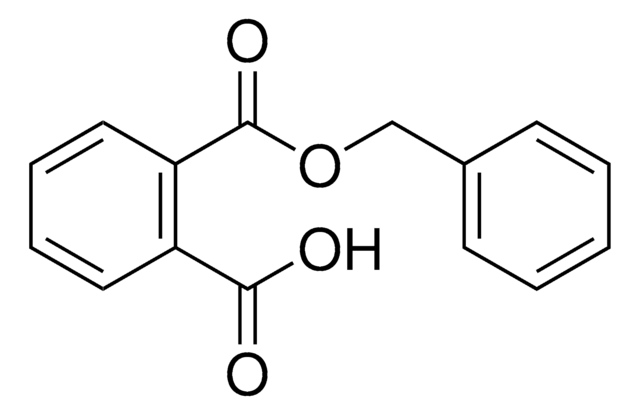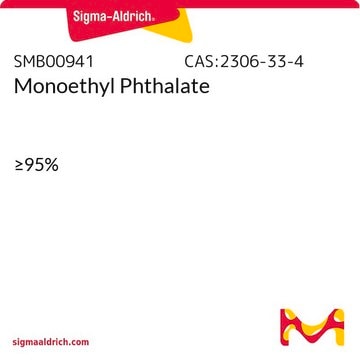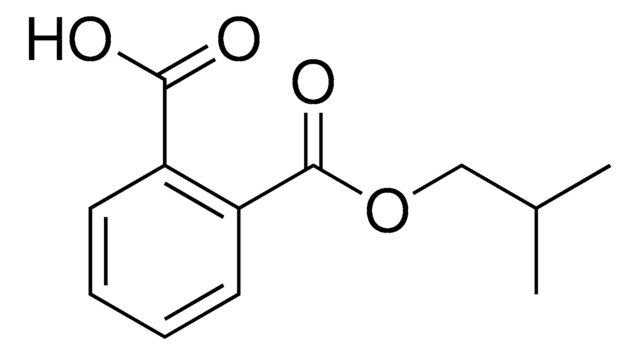42078
mono-[(2RS)-2-Ethyl-5-oxohexyl] phthalate
analytical standard
Synonyme(s) :
1,2-Benzenedicarboxylic acid 1-(2-ethyl-5-oxohexyl) ester, mono-(2-Ethyl-5-oxohexyl) phthalate
About This Item
Produits recommandés
Qualité
analytical standard
Niveau de qualité
Pureté
≥95.0% (HPLC)
Durée de conservation
limited shelf life, expiry date on the label
Technique(s)
HPLC: suitable
gas chromatography (GC): suitable
Indice de réfraction
n20/D 1.516-1.520
Application(s)
cleaning products
cosmetics
environmental
food and beverages
personal care
Format
neat
Température de stockage
2-8°C
Chaîne SMILES
O=C(OCC(CC)CCC(C)=O)C1=CC=CC=C1C(O)=O
InChI
1S/C16H20O5/c1-3-12(9-8-11(2)17)10-21-16(20)14-7-5-4-6-13(14)15(18)19/h4-7,12H,3,8-10H2,1-2H3,(H,18,19)
Clé InChI
HCWNFKHKKHNSSL-UHFFFAOYSA-N
Produits recommandés
Mention d'avertissement
Warning
Mentions de danger
Conseils de prudence
Classification des risques
Eye Irrit. 2 - Skin Irrit. 2
Code de la classe de stockage
10 - Combustible liquids
Classe de danger pour l'eau (WGK)
WGK 3
Point d'éclair (°F)
Not applicable
Point d'éclair (°C)
Not applicable
Faites votre choix parmi les versions les plus récentes :
Déjà en possession de ce produit ?
Retrouvez la documentation relative aux produits que vous avez récemment achetés dans la Bibliothèque de documents.
Notre équipe de scientifiques dispose d'une expérience dans tous les secteurs de la recherche, notamment en sciences de la vie, science des matériaux, synthèse chimique, chromatographie, analyse et dans de nombreux autres domaines..
Contacter notre Service technique








